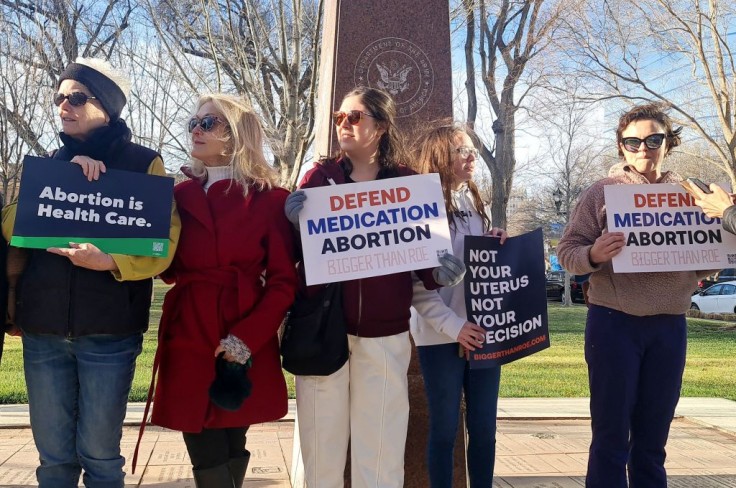
Wyoming Gov. Mark Gordon has signed two anti-abortion bills into law. This makes Wyoming the first state to ban medication abortions separately from an all-encompassing abortion ban.
The move has stirred up a storm of debate, with advocates on both sides of the abortion issue voicing their opinions on the new laws.
Wyoming is the first state to ban medication abortions
According to CNN, Governor Gordon signed a bill banning medication abortions involving taking two medications.
These are mifepristone and misoprostol. The Food and Drug Administration had approved both for use up to ten weeks into pregnancy.
The second anti-abortion bill the Wyoming governor is allowing to become law will ban most abortions except in cases of incest, rape, or when the mother's life is in grave danger.
At least 13 states had enacted trigger bans on abortion, set to go into effect if the Supreme Court overturned Roe v. Wade. Wyoming was one of them.
The trigger ban hinders abortions except for incest, rape, or if the mother is at serious risk of death or injury.
However, a court blocked the trigger ban while the litigation to determine its legality under the state constitution continued.
The new medication abortion ban signed by Governor Gordon makes Wyoming the first state to ban medication abortions separately from an all-encompassing abortion ban.
The law makes it a misdemeanor to prescribe, distribute, dispense, use, or sell abortion medications. These two anti-abortion laws are punishable by prison for up to six months and a $9,000 fine each.
However, this does not include women seeking abortion medication for themselves. The move has been hailed by anti-abortion advocates who argue that medication abortions are unsafe and that the new law will protect the lives of the mother and the unborn child.
On the other hand, pro-choice advocates have criticized the law as an infringement on women's reproductive rights and have vowed to fight it in court.
Wyoming's abortion ban
The second bill bans most abortions except those necessary for the mother's health. The ban would allow abortions in cases of rape and incest and save a woman's life or prevent harm to her health.
According to ABC, abortions will be permitted for women who need cancer treatment, fetuses with fatal anomalies, and ectopic pregnancies, among other exceptions.
Governor Gordon said he believes that if the state legislature seeks to settle the issue of abortion, it may have to come through a constitutional amendment.
He also said that he supports the exceptions in the abortion ban bill and hopes the new laws will prompt a broader discussion on the issue of abortion.
The new law makes violating the ban a felony punishable by up to five years in prison and a fine of up to $20,000.
The signing of the two anti-abortion bills into law by Governor Gordon has set Wyoming on a new path in the abortion debate.
While anti-abortion advocates have praised the move, pro-choice advocates have vowed to fight it in court, setting the stage for a potential legal battle.
The BBC stated that the ban on medication abortions signed by Wyoming Governor Mark Gordon is set to go into effect on July 1.
Currently, there is only one abortion clinic in Wyoming, the Women's Health & Family Care Clinic in Jackson.
Wyoming is just one of several states where legal battles are being waged over abortion bans in the wake of the Supreme Court's reversal of the 1973 Roe v. Wade decision that legalized abortion.